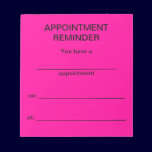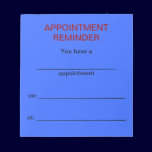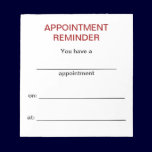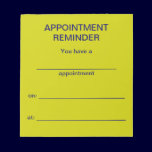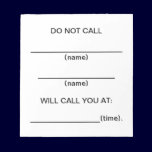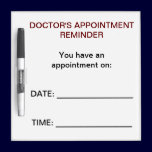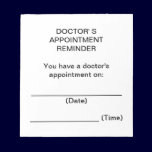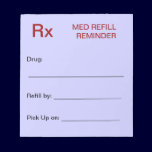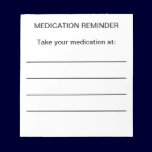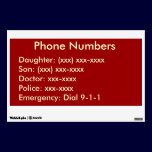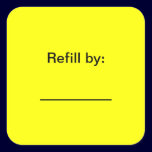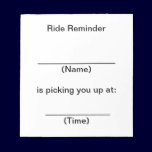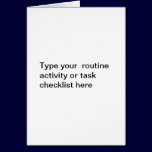How Do I Cope With My Memory Problems?
To help cope with memory problems:- Always keep a book with you to record important information, phone numbers, names, ideas you have, appointments, your address, and directions to your home.
- Place sticky notes around the house when you need to remember things.
- Label cupboards and drawers with words or pictures that describe their contents.
- Place important phone numbers in large print next to the phone.
- Ask a friend or family member to call and remind you of important things that you need to do in the day, like meal times, medication times, and appointments.
- Use a calendar to keep track of time and to remember important dates.
- Use photos of people you see often labeled with their names.
- Keep track of phone messages by using an answering machine.
What's the Best Way to Plan the Day?
In planning your day:- Find things to do that you enjoy and are able to do safely on your own.
- It will be easier to accomplish tasks during the times of the day when you feel best.
- Allow yourself the time to do the things you need to do, and don't feel rushed or let other people rush you.
- If something gets too difficult, take a break.
- Ask for help if you need it.
How Do I Avoid Getting Lost?
To keep from getting lost:- Ask someone to go with you when you go out.
- Ask for help if you need it and explain that you have a memory problem.
- Always take directions for where you're going with you.
What Will Make Communicating Easier?
Communicating with others will be easier if you:- Always take your time, and don't feel rushed.
- If you need to, ask the person you're speaking with to repeat what he/she is saying or to speak slowly if you do not understand.
- Avoid distracting noises, and find a quiet place to talk.
What About Driving?
Driving can be of particular concern for Alzheimer's patients. Here are some things to consider:- Have someone else drive you where you need to go.
- If you tend to get lost or confused easily, consider alternative modes of transportation.
- Drive only in areas that are familiar to you.
- Contact organizations like the Alzheimer's Association to learn what local transportation services are available.
- The Department of Motor Vehicles will assess your driving skills if you're not sure whether you should drive.
- At some point, it may no longer be safe for you to drive.
How Do I Take Care of Myself at Home?
To make sure you are well taken care of at home, put some of these measures into place early so they become routine:- Local Alzheimer organizations or your doctor will be able to tell you how to get help with things like shopping, housekeeping, meals (including home-delivered meals), and transportation.
- Ask a neighbor you trust to keep a set of house keys.
- Ask a friend or family member to help you to organize your closets and drawers to make it easier for you to find things.
- Ask a family member to check things out around the house, such as electrical appliances, mail, and perishable food items.
- Keep a list of important and emergency numbers by the phone.
- Have family, friends, or a community service program call or visit daily to ensure that everything is all right.
- Ask someone to check your smoke alarm regularly.
How Do I Maintain My Responsibilities?
- Arrange for direct deposit of checks, such as your retirement pension or Social Security benefits.
- Inform your bank if you have difficulty keeping track of your accounts and record keeping. They may provide special services for people who have Alzheimer's.
Dementia Signage for the Home
_________________________________
Reminder Notes & Memory Aids
see on 2 styles or 6 products
see on 2 styles or 6 products
$14.00 - Appointment Reminder Notepad
see on 2 styles or 6 products
see on 2 styles or 6 products
see on 2 products
$14.00 - Do Not Call Reminder Note Pads
see on 2 styles
see on 2 styles or 3 products
$14.00 - Lunch Time Reminder Notepads
see on 2 styles
see on 2 styles
$14.00 - Medication Reminder Notepads
see on 2 styles or 3 products
$8.20 - Memory Ring/Keychain (Red)
see on 3 styles or 3 products
$8.20 - Memory Ring/Keychain (Blue)
see on 3 styles or 3 products
$8.20 - Memory Ring/Keychain (Pink)
see on 3 styles or 3 products
$14.00 - Note-is-Me Bold Yellow Notepad
see on 2 styles or 2 products
see on 2 styles or 2 products
$35.95 - Phone List Wall Decal
see on 2 products
$14.95 - Phone Message Notepad
see on 2 styles
see on 3 products
$35.95 - Reminders Dry Erase Board
$14.00 - Ride Reminder Memo Pad
see on 2 styles
$7.35 - Routine Activity Checklist Cards
see on 2 styles
$14.00 - Visitor Reminder Notepads
see on 2 styles
$26.50 - Weekly To Do List Notepad
see on 2 styles


